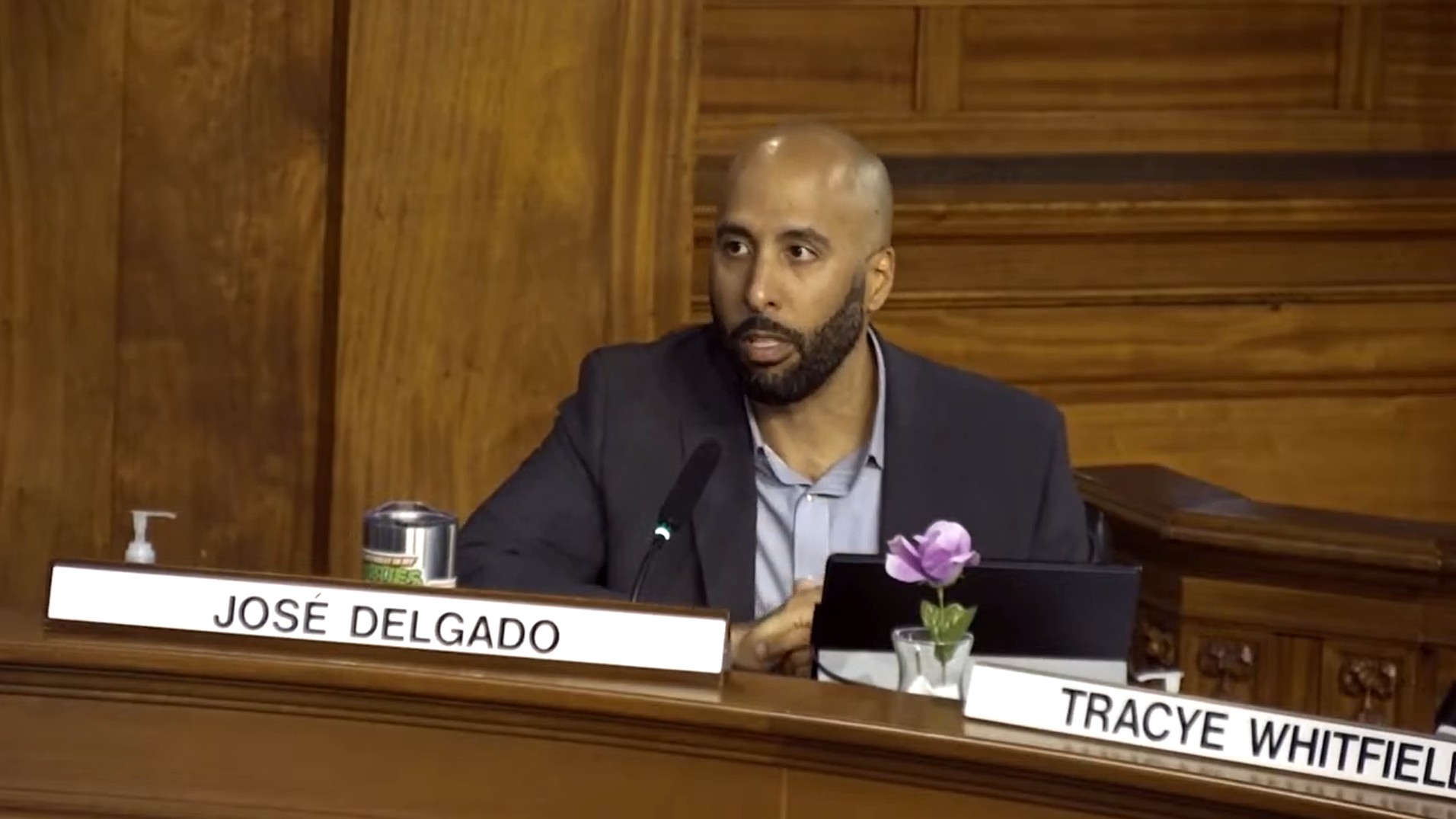At-large City Councilor Jose Delgado shares a skills-based hiring ordinance to the full City Council during its June 2 meeting. The ordinance — which helps expand access to city jobs — passed unanimously during the council’s June 9 meeting.
Photo credit: Focus Springfield
SPRINGFIELD — Over a year after Gov. Maura Healey signed an executive order instituting skills-based hiring practices for the state’s workforce, Springfield has just implemented a similar ordinance to promote equity and inclusion in its own municipal jobs.
During its meeting on June 9, the City Council approved a citywide skills-based hiring ordinance that aims to modernize the city’s hiring practices emphasizing skills, competencies and practical experience in addition to traditional educational requirements.
According to a release sent to Reminder Publishing, the ordinance authorizes all city departments to prioritize skills-based hiring standards wherever applicable, aligning with national best practices. The change seeks to reduce barriers to employment for qualified candidates who demonstrate the skills, certifications and relevant experience needed to succeed in city roles but who may not possess a college degree.
“The purpose of this ordinance is simple; it’s to prioritize what people can do, not just where they went to school,” said At-Large City Councilor Jose Delgado, the initial sponsor of the ordinance. “Too many talented people are getting locked out of job opportunities, not because they lack the abilities or the actual skills to do the job … but because they may lack a minimum degree.”
First introduced by Delgado in the winter, the ordinance allows city departments to remove minimum degree requirements where applicable or where it is not essential for job performance; mandates training for hiring managers so they follow more inclusive hiring practices; and enables the city to support people in the private sector looking to institute their own version of skills-based hiring.
In his remarks to the council, Delgado clarified that the ordinance does not prohibit education from being a hiring factor; it prevents it from being a barrier for certain municipal jobs.
“We hear too often that we’re looking for a talented skilled workforce and that we can’t find them, but I think that that talented and skilled workforce is here in the city of Springfield,” Delgado said. “But we have some barriers that we need to remove in order to do that.”
Springfield’s ordinance comes a year and a half after Healey signed an executive order in January 2024, that required her administration to focus primarily on applicants’ skills, knowledge and abilities, rather than educational credentials when it comes time to hire for state jobs.
According to the order, job postings will only be allowed to include degree conditions when “absolutely necessary” to the performance of the job.
“As the state’s largest employer, we rely on a strong, diverse workforce to deliver crucial services and programs for Massachusetts residents, businesses and communities every day. But too many job applicants are being held back by unnecessary degree requirements,” Healey said at the time. “This executive order directs our administration to focus on applicants’ skills and experiences, rather than college credentials. It will expand our applicant pool and help us build a more inclusive and skilled workforce than ever before.”
In Springfield, Delgado said he received several messages from people who shared experiences of wanting to move up the ladder in their municipal job, but could not because of the bachelor’s degree minimum requirement.
He shared a letter from Nicole Polite, founder and CEO of The MH Group Staffing and Recruiting, that said 62% of working age adults in the U.S. do not hold a bachelor’s degree, yet many have acquired the skills through military service, certifications, training programs and on the job learning.
Polite, whose staffing and recruiting firm was founded in 2013, stated that degrees in certifications in technical professions like accounting and engineering remain critical, however, many non-technical roles — including those in administration, operations, and customer service — are often driven by real-world experience and on the job learning.
She shared in her letter that 21% of Springfield adults at the age of 25 or over hold a bachelor’s degree or higher compared to 40% across the state.
“I spent over a decade plus working in talent acquisition, workforce development, and in that time have observed a growing conversation around the value of expanding hiring criteria to include skills and experience gained through alternative routes, not just formal education,” Polite said.
Many councilors demonstrated appreciation for the ordinance when it was first introduced to the full body at the June 2 meeting. Ward 3 City Councilor Melvin Edwards expressed abject support for the skills-based hiring practices, saying that they will hopefully lead to a broader citywide conversation around how managers can better treat their employees.
“I’m very happy to support this,” Edwards said. “I’m hopeful that because of this conversation that we would also look at the fact that making sure that our managers know how to treat employees, that they know how to document workforce performance so that we get the best out of the people that we’re hiring.”
At-Large City Councilor Sean Curran called the ordinance a “terrific piece of legislation” that helps fill some of the gaps many department heads say they face when hiring. Meanwhile, Ward 8 City Councilor Zaida Govan said the ordinance was “long overdue” in the city.
“The number of times that I hear from department heads that they can’t find qualified individuals in our city, a lot of times I wonder how many of those needed degrees,” Govan said.
The ordinance passed the council 10-0 and will go into effect immediately. According to Delgado, similar skills-based hiring initiatives have been implemented in many states, including Massachusetts, Maryland, Colorado and Pennsylvania.


